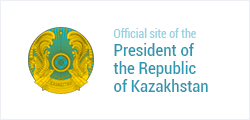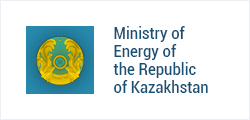- SUSTAINABLE DEVELOPMENT

- Home Page
- Sustainable Development
- Environmental Impact
Environmental Impact
The primary goal of LLP West Gas Energy is to perform sustainable and competitive manufacturing while preserving a positive environmental state. The corporation constantly verifies that the environmental discipline of production is being followed since environmental safety is its most important indicator and value. Additionally, systematic efforts are made to prevent environmental law infractions throughout the Republic of Kazakhstan and to enhance the local environmental status.
The high performance and efficiency of the Company’s production activities are ensured by being a part of LLP West Gas Energy and by operating in compliance with management, technological, technical, and social standards that have been adopted and are regularly updated. Additionally, it adheres to and implements LLP West Gas Energy’s emissions management policy.
We understand our responsibility to the local, national, and international communities in the battle against climate change, as well as the impact our actions have on the environment and atmosphere. In this sense, developing a strategy to reduce and control emissions into the environment and examining opportunities for the implementation of innovative projects and technologies rank as our top priority. We are committed to following all applicable local, state, federal, and international environmental regulations with regard to air emissions.
Utilization and neutralization of waste
Trash owners are required by the Republic of Kazakhstan’s Environmental Code to either guarantee their waste management by transferring their waste to commercial companies that undertake waste management operations or manage their rubbish securely on their own. On August 6, 2019, the Ministry of Ecology, Geology, and Natural Resources of the Republic of Kazakhstan and LLP West Gas Energy resigned their agreement of understanding on environmental protection, with updated amounts for 2020–2024. Reducing and eventually eliminating contaminated soil and waste disposal is the aim. As per the terms specified in the Memorandum, efforts are underway to dispose of and process historical waste by means of biological reclamation of soil contaminated with oil and oil products, as well as the utilization of an energy-storing additive that is based on composite materials containing humate.
The Company constantly creates strategies for overseeing environmental activities and allocates the necessary funds for environmental protection, specifically for environmental costs. These include taxes paid for emissions required by regulations, costs associated with environmental protection measures, insurance, costs associated with environmental compensation measures, investments made in mitigating environmental impacts, etc. The dynamics of increasing compensation for emissions into the atmosphere were not observed during the years 2018 to 2020.






